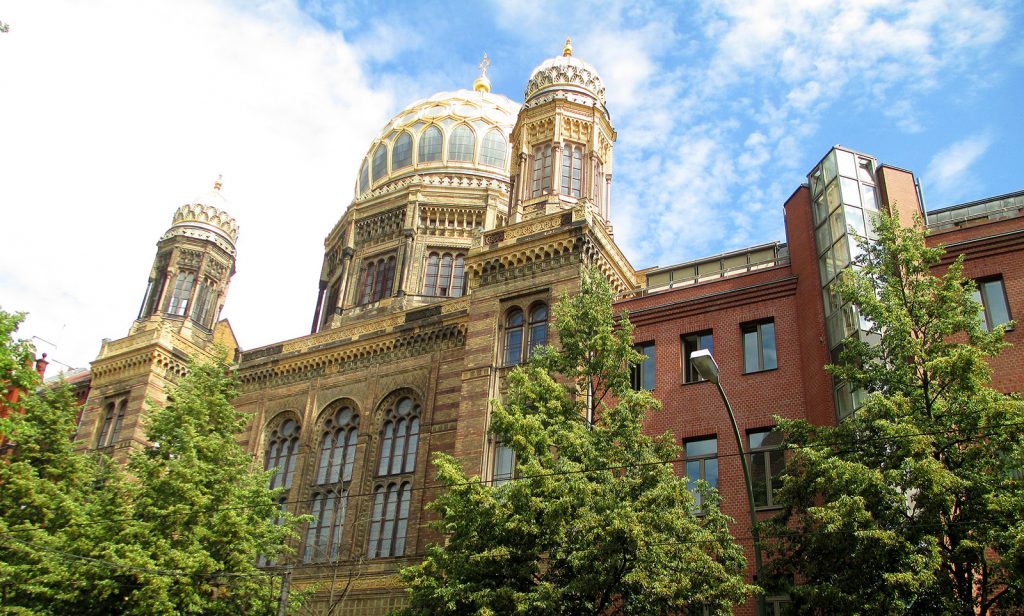
The New Synagogue in Berlin. Reconstruction of the building, which was severely damaged during World War II, began in 1988 in the German Democratic Republic (East Germany). Photo by Dr. Avishai Techer.
By Katja Schatte
In recent months in Germany, the debate around so-called Vaterjuden_jüdinnen, or “father Jews,” i.e., Jews who have Jewish roots only on the patrilineal side of their family, has gained renewed attention in the media due to a debate between Maxim Biller, a writer born in 1960, and Max Czollek, a writer and poet born in 1987.
This debate was sparked by a tweet by Max Czollek in July 2021: “Incidentally, I am not a Jew for Maxim Biller. Maybe we should also talk about intra-Jewish discrimination. #patrilinear.” What followed was a debate about Jewish identity and the significance of halakhah (Jewish law) in the twenty-first century, spanning several months and multiple online platforms and media outlets.
Seemingly everyone got involved, including well-known Jewish voices from both Czollek’s and Biller’s generations, and the wider German public — both Jewish and non-Jewish — all the way up to the president of the Central Council of Jews in Germany, Josef Schuster. Among the more controversial responses was an open letter in defense of Max Czollek published in September 2021 with a long list of both Jewish and non-Jewish signers attached.
While the controversy around the significance of the halakhic definition of Jewishness — that is, the definition based on rabbinic legal precedent, or halakha — is not new, Max Czollek’s family history hints at an aspect that has often been overlooked: the story of East German Jews.
Jews in the German Democratic Republic (1949-1990)
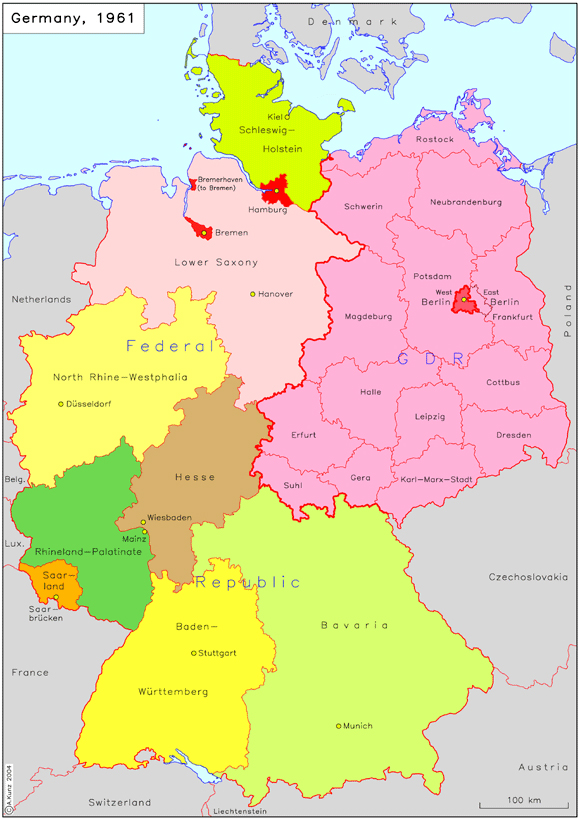
Map showing the German Democratic Republic (pink, right) and the Federal Republic of Germany (multicolored, left) in 1961. From German History in Documents and Images.
Max Czollek’s paternal grandfather was the Jewish Communist resistance fighter Walter Czollek. Like Max Czollek’s grandfather, many left-leaning Jews had settled in the Soviet Occupation Zone of Germany, and later in the new state of East Germany, officially known as the German Democratic Republic (GDR), an ally of the Soviet Union.
While many members of this first generation had been involved in shaping East German society, their children were in the prime of their lives when it ceased to exist in 1990 and the GDR was absorbed by the Federal Republic of Germany (West Germany). For Jews in East Germany, this moment of profound disruption and upheaval — both at the personal and the societal level — turned into a moment of renegotiating many aspects of their lives, including notions of Jewishness.
Eight small Jewish congregations existed under a centralized board of directors and president in the German Democratic Republic (GDR), though without permanent rabbis, due to the devastating effects of the Holocaust on the local Jewish population and the lack of a seminary.
Due to their halakhic conception of Jewishness, which requires that the mother be Jewish, individuals who had only a Jewish father were not recognized as Jews by these congregations, either before or after reunification.
The struggle over the definition of Jewishness was about more than common inter-denominational struggles surrounding the issue. It was another level of the struggle for narrative authority, in this instance between the East German state (until its dissolution in 1990), the East German congregations, West German Jewish institutions, and East German individuals who identified as Jewish.
A new rabbi in the GDR and a Reform perspective
Retired rabbi Isaac Neuman from Champaign, Illinois, a Holocaust survivor from Poland, arrived to support these Jewish congregations of the GDR in 1987, after Klaus Gysi, State Secretary for Church Affairs at the time and Jewish himself, had successfully advocated for bringing a rabbi from abroad who would support the Jewish congregations of the GDR permanently.
Neuman’s approach to Judaism was shaped by his U.S. background in Reform Judaism. As historian and rabbi Ulrike Offenberg writes in her book “Seid vorsichtig gegen die Machthaber: Die jüdischen Gemeinden in der SBZ und der DDR 1945-1990” (“Be Careful Around Those in Power: The Jewish Congregations in the Soviet Occupation Zone and the GDR, 1995-1990”):
Neuman’s goal was to integrate ‘the new ones’ more actively into the work of the congregation and to facilitate their access to Jewish culture and religion, without first making maximum demands in terms of origin and confession of faith. As a Reform rabbi, halakhic criteria for Judaism mattered less to him, and he accepted the children of Jewish fathers as Jews.
However, despite being the only Jewish religious authority figure in the entire GDR, Neuman did not have the power to admit new members to any of the congregations without first consulting with their central boards of directors.
The boards of directors, however, were in their majority more conservative than Neuman, opposing not only post-halakhic definitions of Jewishness but also other elements of Reform Judaism, such as the equal status of men and women and the increased use of the local language instead of Hebrew. As a result, they accused Neuman of focusing primarily on attracting non-Jews and disrespecting their traditions.
Due in large part to this ongoing conflict, Neuman decided to leave his position and return to the U.S. in 1988, one year after his arrival in the GDR. With the influence of his ideas, however, even if ever so briefly, and with the creation of the Jewish community group Wir für uns (We for Ourselves) in 1986, the foundation for a more pluralistic understanding of Jewish identity and Jewish culture had been laid.
Jewish community groups and expanding definitions of Jewishness
Founding member Irene Runge described the approach of Wir für uns, and its successor organization, the Jewish Cultural Association, by saying:
The Wir für uns group also told people: “Come if you are from a Jewish family.” We kept that pretty vague. And that’s how the group emerged. (…) And we didn’t verify either, right? If someone had joined and had said [they were Jewish] … we would have — it was convincing — believed it. But because everyone more or less knew each other (…). I think the majority were halakhically Jews, and some weren’t, but I don’t really know.
Thus, in a small community like that of East Berlin, in addition to an issue of halakha, Jewish identity was also a relational identity. Rather than verifying new members’ Jewish ancestry, Wir für uns often relied on the fact that people knew each other.
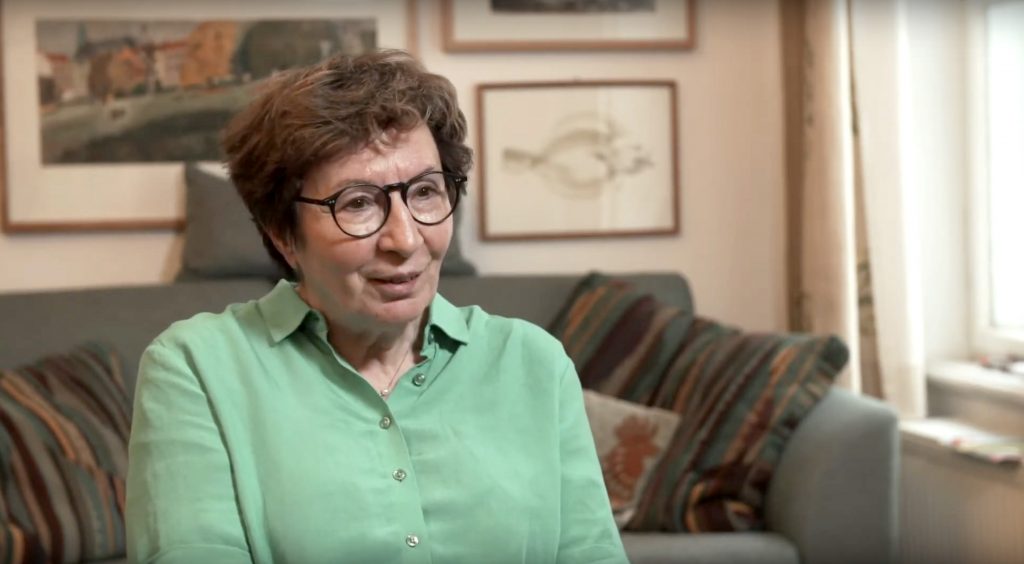
Irene Runge speaks in a video interview for the project “Reminiscences – Jewish Perspectives on German Unity and the Transformation 1989/90” („Gegenerinnerung/en – Jüdische Perspektiven auf die deutsche Einheit und die Transformation 1989/90“).
However, this was not a mechanism that worked when Jews from the Soviet Union started arriving in the GDR in 1989 and 1990, as Irene Runge explains:
They [the congregation] thought people [Jews from the Soviet Union] were stupid. And then they weren’t Jewish enough for them. And then there were those issues with the halakha. In the U.S., they were encouraging them [spouses] to convert …. Here they just said, I don’t know… There were those families, (…) [s]o, the parents are Jewish. The sister has a non-Jewish husband; the children are Jewish. The sons have non-Jewish wives; the children are not Jewish. Only the sister’s children can participate in the congregation’s summer camp, and the others can’t.
Runge also acknowledges that this approach was likely based on capacity issues — the fact that the small East Berlin congregation was overwhelmed with the sheer number of Jews arriving from the Soviet Union, which increased greatly after the GDR’s government granted Soviet Jews asylee status in July 1990.
Acknowledging Jewish self-identification
In his preface to a book published by the Jewish Cultural Association, the successor organization of Wir für uns, on the occasion of its 20th anniversary in 2009, West German professor of education Michael Brumlik, born to Jewish parents in exile in Switzerland, summarized just how big of a shift the Jewish Cultural Association’s existence and activity was, especially in the context of Germany:
Who is considered a Jew is clear according to the halakha: Someone is the child of a Jewish mother or has formally converted in front of a rabbinical beth din, a rabbinical court. In this respect, the halakha applies as well, but not exclusively, in the Federal Republic of Germany [contemporary Germany]. In addition to it, there is German ecclesiastical law [the German state’s system of officially collecting money on behalf of major religious groups].
According to this law, Jews are individuals who are members of a Jewish religious congregation, which in turn is itself a public corporation or a member of a state association, which in turn has said status. But not to worry, this is not going to be about the intricacies of German ecclesiastical law — which hardly anyone understands outside of Germany — but just about the simple fact that there are Jews who do not want their self-perception, their identity, to depend on becoming taxable members of a public body by any means.
The implications of acknowledging this level of Jewish self-identification — especially in the German context, where religious recognition is tied to official membership in a registered congregation — are far-reaching.
And indeed, the heated debates among Jewish millennials in the public eye in Germany today, many of them East German, born in the Soviet Union, and/or patrilineal Jews — including writers Mirna Funk, born in East Berlin in 1981, Max Czollek, born in East Berlin in 1987, Lena Gorelik, born in St. Petersburg in 1981, and Sasha Marianna Salzmann, born in Volgograd in the Soviet Union in 1985 — have shown that narrative authority on the issue can no longer be claimed easily by one single institution.
Wir für uns and the Jewish Cultural Association were an important step in the process of helping East German Jews to reclaim their voices — even if it was just to distance themselves from the group — in the process of diversifying the conversation around Jewishness and Jewish identity in post-World War II, post-reunification Germany.

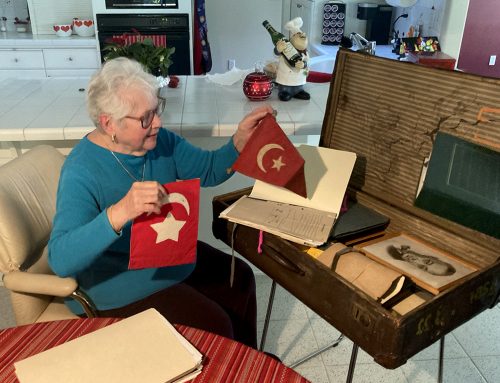
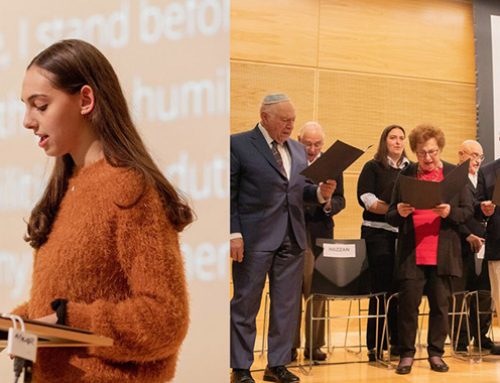
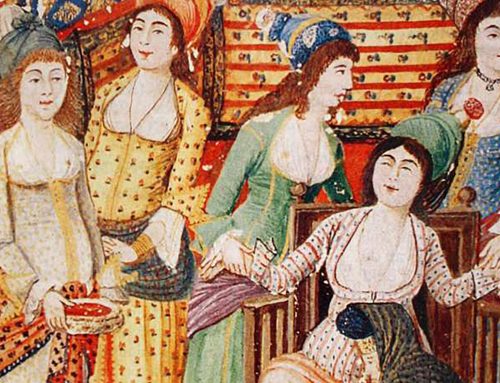

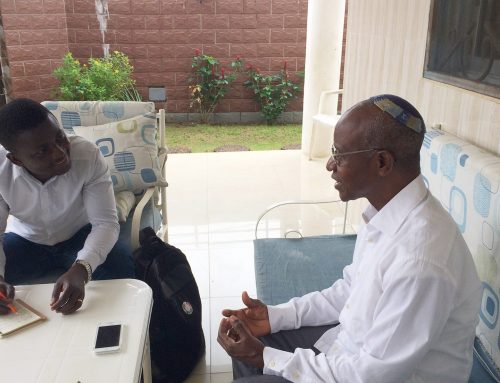
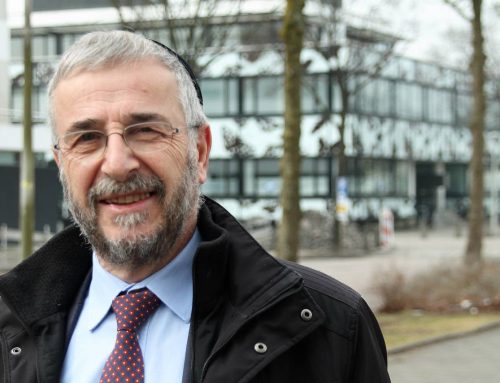
Leave A Comment